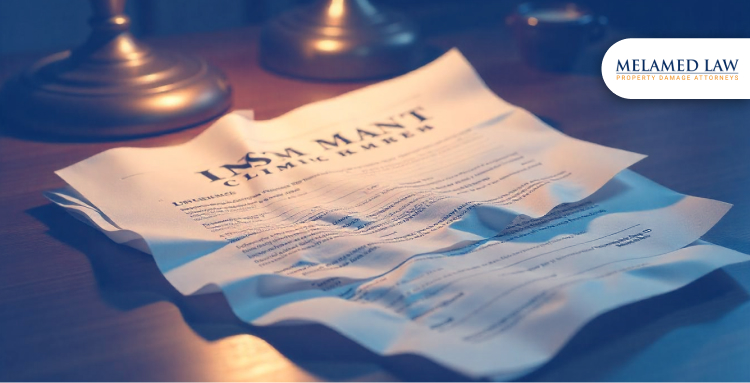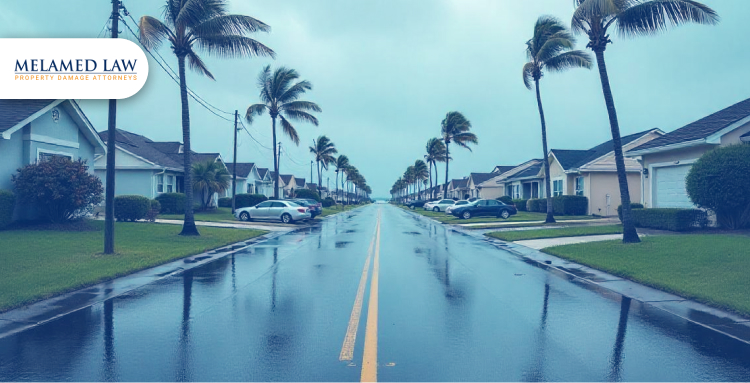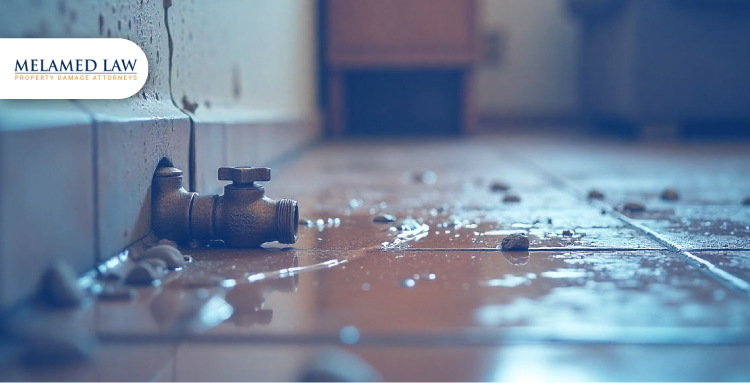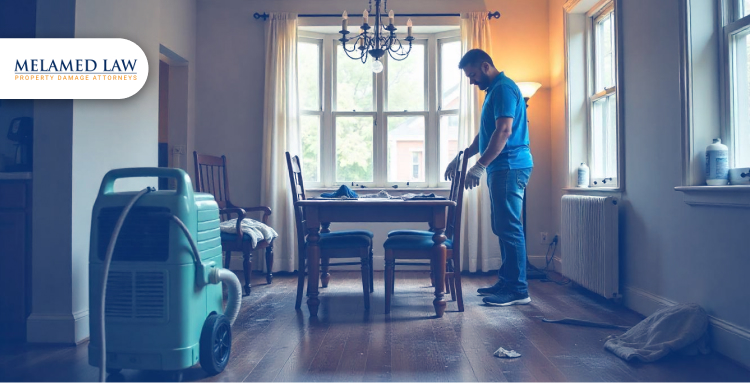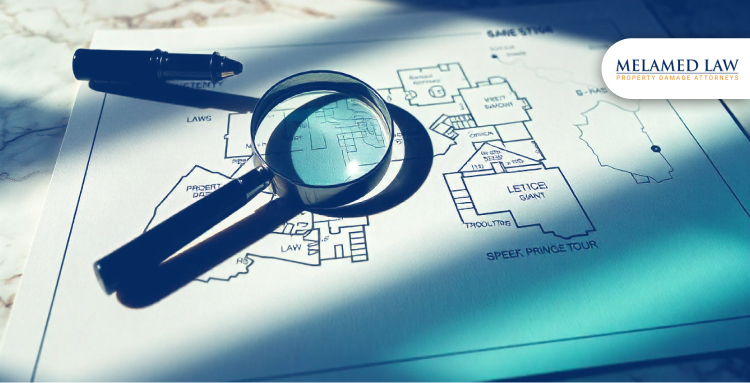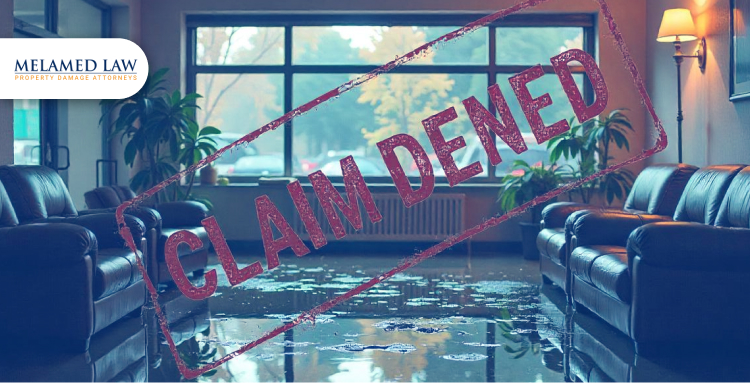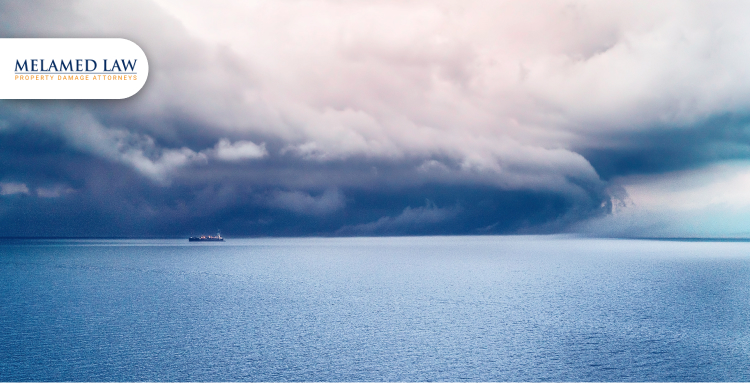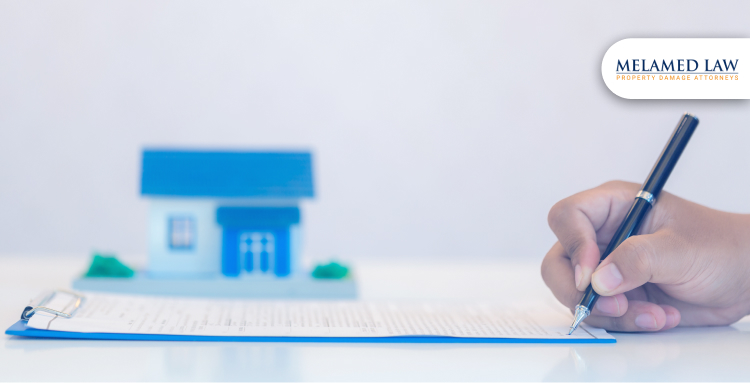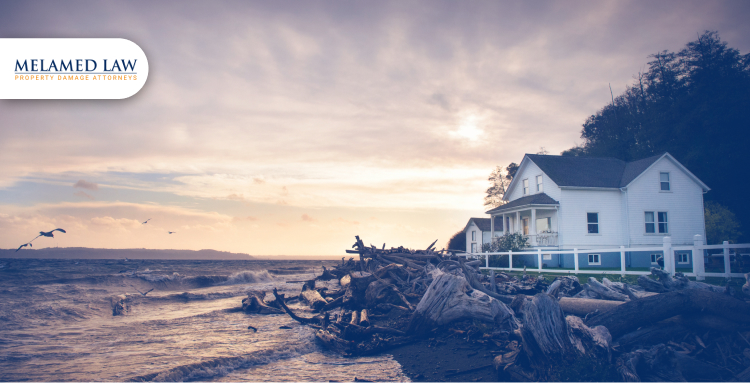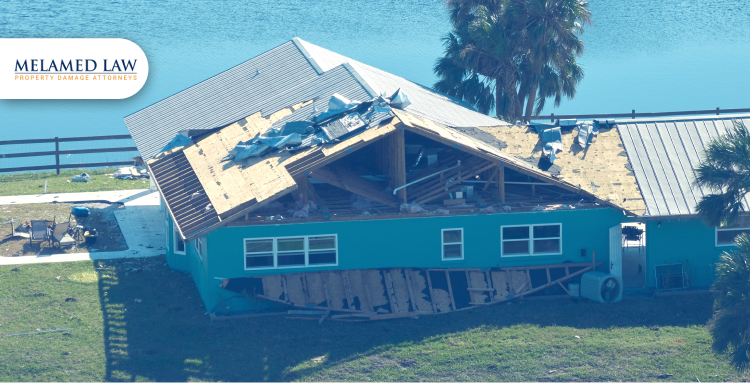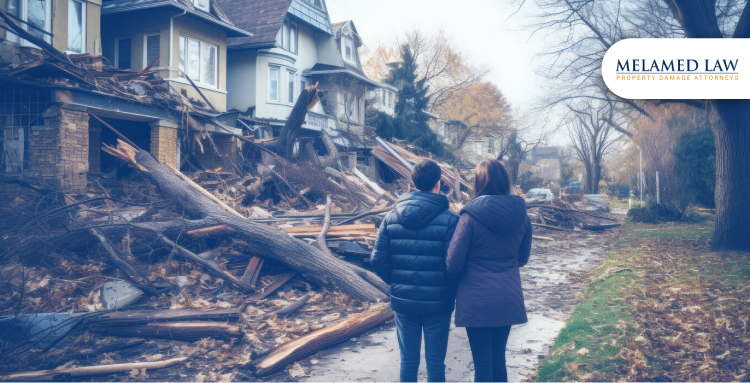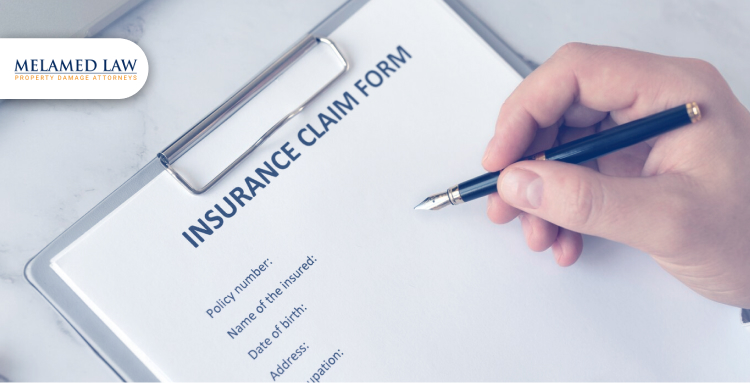
What is the plan for rebuilding Tropicana Field after the damage caused by Hurricane Milton?
When the unexpected happens, we help individuals and businesses collect the money they deserve for their insurance claims.
Melamed Blogs
January 26, 2025
What is the plan for rebuilding Tropicana Field after the damage caused by Hurricane Milton?
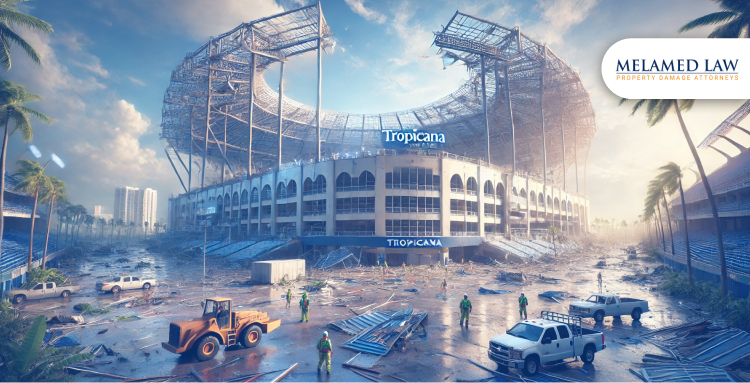
When Hurricane Milton hit Florida, it didn’t just bring heavy winds and rain—it left behind widespread destruction, including damage to the iconic Tropicana Field. If your property was affected, you’re likely asking: Where do I begin? What are my rights? These are important questions to consider.
The good news is Florida law lays out clear steps to help you recover. From filing insurance claims to repairing your property and even taking legal action if needed, you have a path forward. Let’s walk you through the key steps to take right after a disaster like Milton, so you can rebuild with confidence.
(I) Assessing the Damage: What to Look for After a Hurricane
After a hurricane like Milton, the first thing you’ll want to do is carefully assess the damage to your property. While it’s crucial to stay safe during your inspection, you can begin by looking for visible damage to the roof, windows, siding, and other vulnerable areas of your home.
Initial Damage Assessment
Roof: Look for missing shingles, large debris, or holes in the roof. If you can safely do so, use a ladder to check areas you can’t reach from the ground, or consider hiring a professional to avoid any risks.
Windows & Siding: Look for cracks, broken glass, or dents. If your windows have been compromised, it’s vital to prevent water damage by boarding them up temporarily.
Exterior walls: Check for cracks or signs of water intrusion.
Safety tip: Don’t attempt to climb on the roof if it's unsafe. Stay on solid ground and check for any hazards, such as downed power lines or unstable structures.
Documenting Damage for Insurance
Once you've identified visible damage, the next crucial step is documenting everything thoroughly. Take clear photos from multiple angles of each damaged area. Make sure the photos are timestamped, as this can help with your insurance claim. Write down a detailed description of what’s been damaged and any structural issues.
Dealing with Severe Damage
If you spot foundation cracks or missing roof sections, contact a licensed contractor or structural engineer immediately. Avoid DIY repairs to ensure safety and avoid insurance issues. Florida law often requires professionals to assess damage that might affect safety, and they can help ensure you're meeting local building codes when making repairs. If you're unsure about what constitutes severe damage, err on the side of caution and seek expert advice.
(II) Reporting the Damage

After assessing the damage to your property, it’s time to report it to your insurance company. The sooner you start this process, the faster you can begin to recover.
➤ Filing Insurance Claims
Contact your insurance company immediately to report the damage. Use their 24/7 hotline, online portal, or mobile app to file your claim. Gather documentation, including photos, a list of damaged items, and repair estimates. Describe the damage in detail and keep copies of all communications. Review your policy to understand coverage and exclusions before submitting your claim.
Important note: If you have flood insurance, it’s important to file a separate claim specifically for water-related damage, as standard homeowner’s insurance doesn’t always cover flooding.
➤ Flood Damage Considerations
When it comes to hurricane-related damage in Florida, it’s important to understand that flood damage is treated differently under the law compared to wind damage. Flooding caused by the hurricane’s storm surge or rain is typically covered by flood insurance, which is separate from your standard homeowner’s policy.
Standard homeowner’s insurance generally covers damage caused by wind, such as a blown-out window or roof damage from high winds. However, damage caused by rising floodwaters won’t be covered unless you have a separate flood insurance policy through the National Flood Insurance Program (NFIP) or a private provider.
III) Repairing or Rebuilding Property: Legal and Financial Aspects
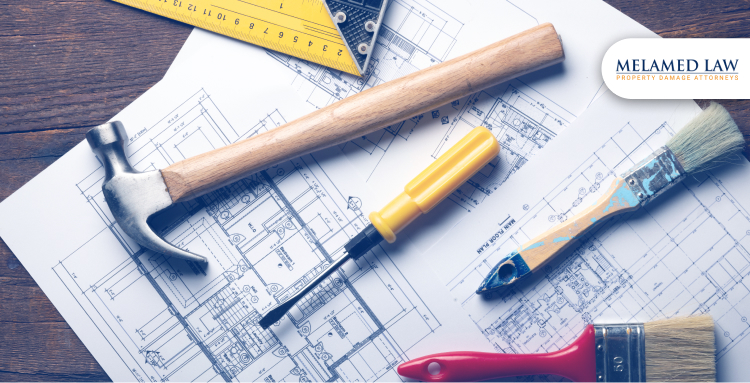
Once you've assessed the damage and filed your insurance claims, it’s time to think about how to repair or rebuild your property. Here's what you need to know:
Temporary Repairs
The priority after any storm is to secure your property and prevent further damage. Florida law allows homeowners to make temporary repairs immediately after a disaster to protect their property from additional harm—things like covering broken windows with plywood or tarping a leaking roof. These temporary repairs are considered reasonable and necessary steps to prevent further damage and to keep your home safe. Permanent repairs should be done by licensed contractors once the proper permits are secured.
Hiring Contractors
When it's time to hire contractors to make the permanent repairs, it's essential to work with licensed and insured professionals. Florida requires that all contractors be properly licensed to ensure they follow the state's strict building codes and standards. To verify if a contractor is licensed, you can check the Florida Department of Business and Professional Regulation (DBPR) website or ask to see their license number directly.
Pro tip: Make sure your contractor carries insurance to protect you in case of accidents during the repair process. If you hire an unlicensed contractor, you could face issues with insurance claims or future compliance with local building codes.
Permitting and Compliance
In Florida, permits are required for most structural repairs and reconstruction after a hurricane. This includes repairs to your roof, windows, electrical systems, plumbing, and any other significant changes to your property. The permitting process ensures that all repairs comply with Florida’s building codes, which are designed to make properties more resilient against future storms.
Before starting any major repairs, contact your local building department to find out which permits are needed. Be aware that failing to get the proper permits can lead to fines or delays in your repair process. Once the repairs are completed, a final inspection will typically be required to ensure everything meets the code. This inspection can be arranged through your local city or county office.
After a hurricane, local governments might also issue post-hurricane inspections to evaluate the damage to buildings in the area. These inspections can help determine whether a property is structurally safe or needs additional attention.
IV) Property Insurance in Florida: What You Need to Know
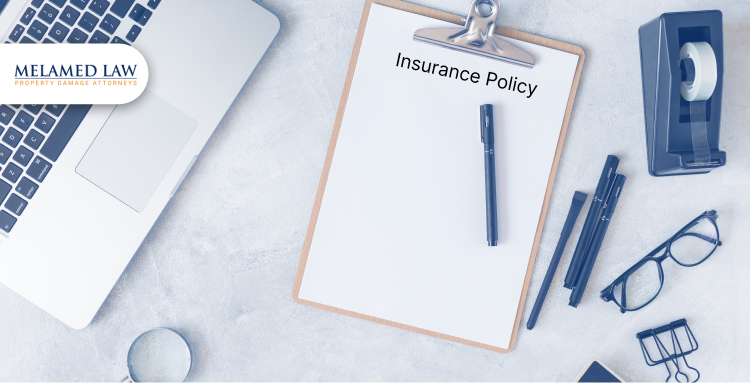
When it comes to recovering from hurricane damage, understanding your property insurance policy is key. Here’s what you need to know about insurance coverage, exclusions, and how to handle disputes.
Florida’s Insurance Laws
Florida’s property insurance laws are designed to protect homeowners and business owners in the aftermath of natural disasters like hurricanes. Key laws include the requirement for insurance policies to cover wind damage, which is common in hurricanes, as well as provisions related to timely claims handling. Additionally, Florida law requires insurers to provide clear and comprehensive explanations of any exclusions or limitations in coverage, so you know exactly what’s covered.
For businesses, Florida’s Commercial Property Insurance covers the building and business contents from damages like wind, hail, and rain, but it’s important to ensure that the policy also includes business interruption coverage, which helps you recover lost income if your business has to close temporarily.
Understanding Exclusions and Coverage Limits
One of the most important things to understand about your insurance policy is what’s not covered. For example, most standard homeowners’ policies cover wind damage but don’t cover flooding unless you’ve purchased separate flood insurance. In Florida, floods from hurricanes can cause extensive damage, so having a flood policy through the National Flood Insurance Program (NFIP) or a private insurer is crucial if you're in a flood-prone area.
Your policy may also include coverage limits—the maximum amount your insurer will pay for certain types of damage. For example, if your roof has extensive damage, your policy may limit how much it will pay for repairs. Always review the policy’s depreciation clauses, as some policies may only cover the current market value of the damaged property, rather than replacement cost. Be sure to understand your deductibles as well, which will impact how much you’ll have to pay out-of-pocket before your insurance kicks in.
Disputes with Insurance Companies
If your claim is denied, or if you feel you’re being underpaid for the damage, Florida’s bad faith insurance laws are there to protect you. Under these laws, insurers are required to act in good faith when handling claims. If an insurance company unfairly denies or delays payment, or if they offer a settlement that is unreasonably low, they could be violating Florida Statutes Chapter 624, which outlines the obligations of insurance companies in the state.
If you believe your insurer isn’t fulfilling its obligations, you have options. Start by appealing the decision directly to your insurance company. Many insurers have an internal review process that could resolve the issue. If this doesn’t work, you can file a complaint with the Florida Department of Financial Services (DFS), which oversees insurance companies in the state.
V) Financial Assistance and Relief Programs
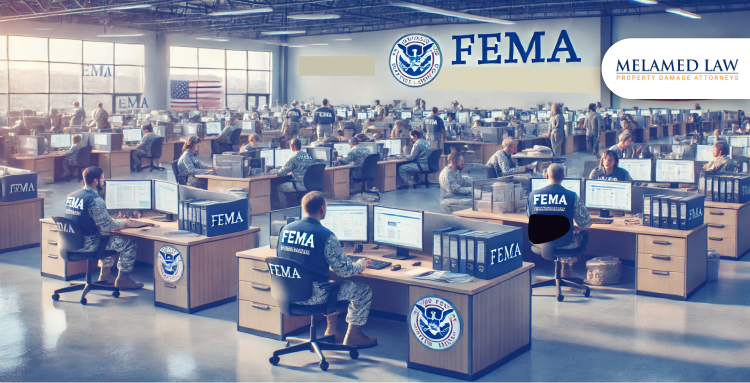
Recovering from hurricane damage can be overwhelming, but there’s help available through various state, federal, and local programs designed to assist homeowners, renters, and business owners. Here’s an overview of some key financial relief options to consider:
State and Federal Aid
After a disaster like Hurricane Milton, FEMA (Federal Emergency Management Agency) provides critical financial assistance for homeowners and renters who suffer property damage. FEMA can offer help with temporary housing, home repairs, and other essential needs that aren’t covered by insurance. To apply for FEMA aid, you can visit their website or call their disaster assistance hotline.
State programs may also offer financial help for specific needs, such as food, housing, or medical expenses. The Florida Division of Emergency Management (FDEM) often works in tandem with FEMA to provide resources.
Additionally, if you’re dealing with loss of income or property, there may be tax relief programs available, check with the IRS or consult a tax professional to find out how you can reduce your tax burden due to the hurricane’s impact.
Small Business Administration (SBA) Loans
If you own a business in Florida, the Small Business Administration (SBA) offers low-interest disaster loans to Florida homeowners and businesses for repairs and uncovered damages. These loans can also address personal property damage in business spaces. To apply, submit financial documents and damage descriptions through the SBA Disaster Assistance website or visit a local SBA center for guidance.
Tip: SBA loans are designed to be affordable, but it’s important to apply quickly, as they may have application deadlines that coincide with FEMA’s disaster assistance period.
Local Government Assistance
Local authorities are also a key resource in the recovery process. Many counties and cities offer programs for things like debris removal, temporary shelters, and support with municipal rebuilding efforts. You can contact your city’s Emergency Management Office to find out what specific programs are available in your area. In some cases, local governments may also provide grants or financial aid to help homeowners and businesses recover.
Some cities and counties offer no-cost debris removal or provide free consultations on how to safely and effectively clean up your property. If you're unsure where to begin, your local government’s website or disaster response hotline is the place to start.
VI) Legal Rights and Claims for Property Damage
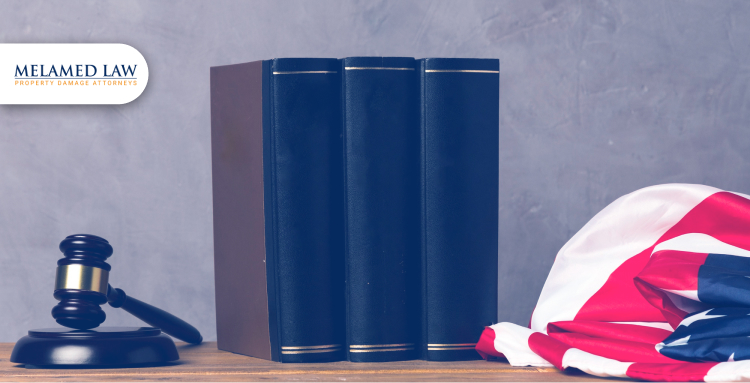
If the damage caused by Hurricane Milton isn’t fully covered by insurance, or if you’re facing issues with your insurer, Florida law provides avenues to pursue compensation through legal action. Here's an overview of your options for legal recourse in property damage situations.
Suing for Damages
In Florida, homeowners and business owners can file a lawsuit if their insurance doesn’t fully cover their losses. If your insurer denies or underpays your claim, you can seek compensation from responsible parties, such as contractors or negligent property owners.
You also have the right to sue a contractor for breach of contract if they fail to meet their obligations. If your insurer acted in bad faith, you can seek damages for emotional distress and legal fees. Consult a legal expert to assess the strength of your case before proceeding.
Litigation Timeframes
If widespread damage affects many people similarly, such as a contractor failing to complete work on multiple homes, you may be able to join a class action lawsuit. Class actions allow multiple plaintiffs to pursue compensation together, making the process more efficient and cost-effective. Consult an attorney to determine if your case qualifies for class action status.
Claims Against Contractors
If a contractor fails to meet contract terms, whether through poor workmanship or missed deadlines, you have the right to file a claim. Florida law allows homeowners and business owners to pursue claims against contractors who don't fulfill their obligations or cause additional damage.
Before filing, gather documentation like the contract, photos of the work, and any communication showing the contractor's failure. If negligence or breach occurred, you may be entitled to compensation for repairs, lost time, and related costs. Contractors in Florida must be licensed and insured, so you can also file complaints with the Florida Department of Business and Professional Regulation (DBPR).
How Melamed Law PLLC Helps You Recovering and Moving Forward
Recovering from a hurricane might seem unmanageable, but Melamed Law PLLC is here to simplify the process and support you every step of the way. We help you navigate property damage claims, ensuring you understand your insurance coverage and advocating for fair compensation.
If your claim is denied or underpaid, our experienced attorneys can address disputes to protect your rights. Additionally, we guide you through compliance with Florida’s building codes and permitting requirements, helping to avoid legal complications during repairs or rebuilding. For reliable support after a hurricane, reach out to Melamed Law PLLC to handle the legal complexities while you focus on recovery.
Recent Cases
